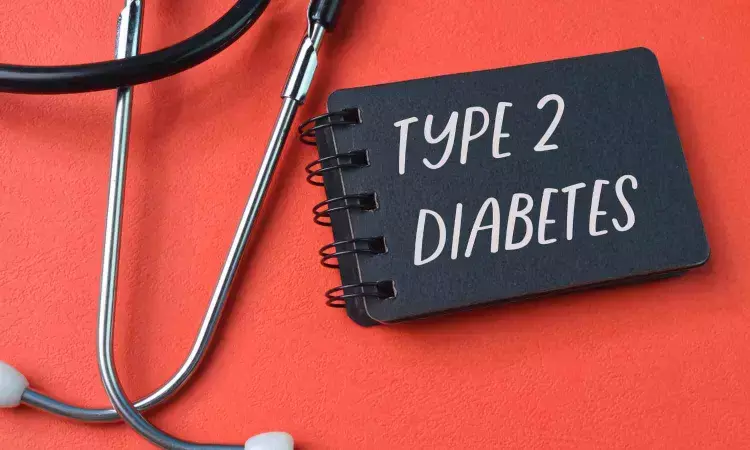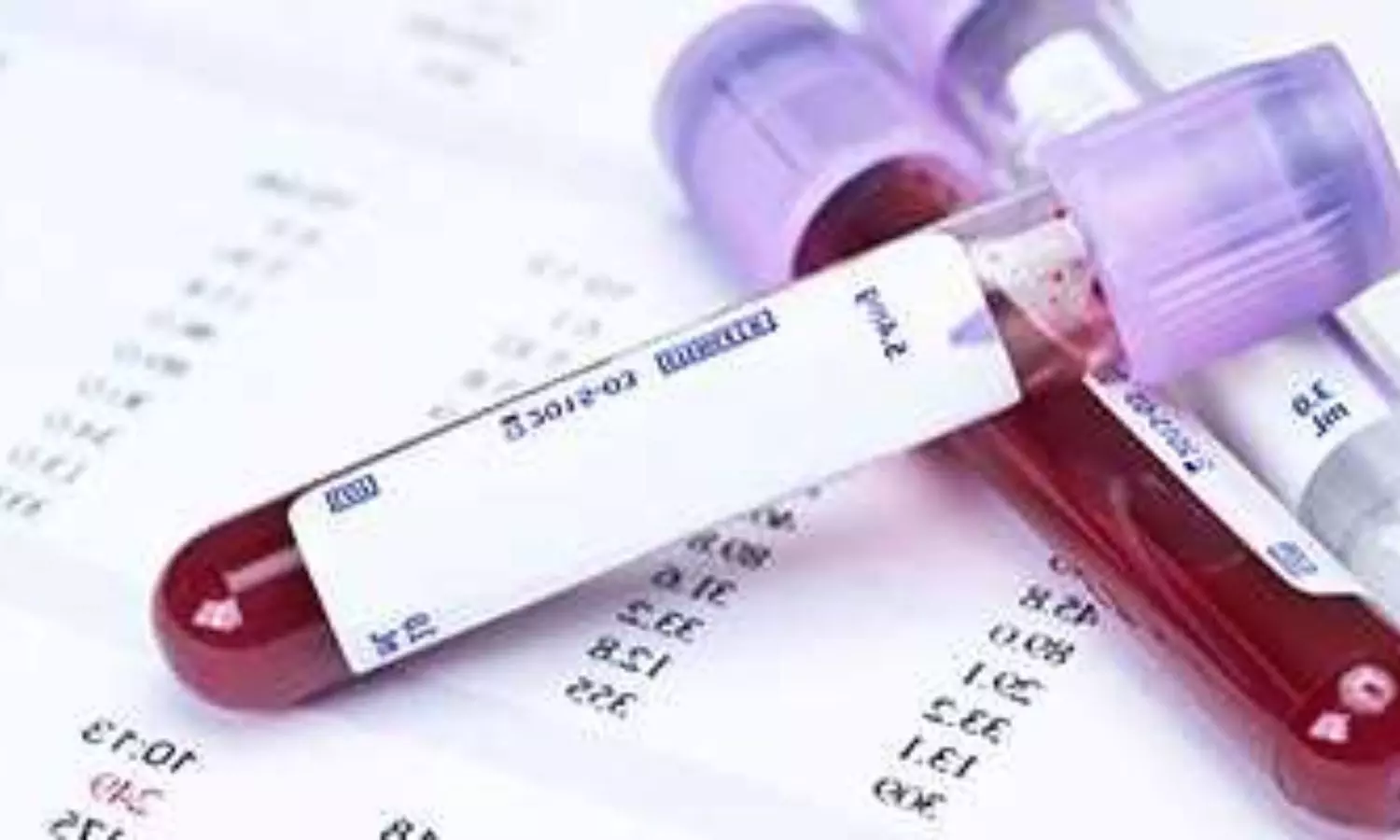- Home
- Medical news & Guidelines
- Anesthesiology
- Cardiology and CTVS
- Critical Care
- Dentistry
- Dermatology
- Diabetes and Endocrinology
- ENT
- Gastroenterology
- Medicine
- Nephrology
- Neurology
- Obstretics-Gynaecology
- Oncology
- Ophthalmology
- Orthopaedics
- Pediatrics-Neonatology
- Psychiatry
- Pulmonology
- Radiology
- Surgery
- Urology
- Laboratory Medicine
- Diet
- Nursing
- Paramedical
- Physiotherapy
- Health news
- Fact Check
- Bone Health Fact Check
- Brain Health Fact Check
- Cancer Related Fact Check
- Child Care Fact Check
- Dental and oral health fact check
- Diabetes and metabolic health fact check
- Diet and Nutrition Fact Check
- Eye and ENT Care Fact Check
- Fitness fact check
- Gut health fact check
- Heart health fact check
- Kidney health fact check
- Medical education fact check
- Men's health fact check
- Respiratory fact check
- Skin and hair care fact check
- Vaccine and Immunization fact check
- Women's health fact check
- AYUSH
- State News
- Andaman and Nicobar Islands
- Andhra Pradesh
- Arunachal Pradesh
- Assam
- Bihar
- Chandigarh
- Chattisgarh
- Dadra and Nagar Haveli
- Daman and Diu
- Delhi
- Goa
- Gujarat
- Haryana
- Himachal Pradesh
- Jammu & Kashmir
- Jharkhand
- Karnataka
- Kerala
- Ladakh
- Lakshadweep
- Madhya Pradesh
- Maharashtra
- Manipur
- Meghalaya
- Mizoram
- Nagaland
- Odisha
- Puducherry
- Punjab
- Rajasthan
- Sikkim
- Tamil Nadu
- Telangana
- Tripura
- Uttar Pradesh
- Uttrakhand
- West Bengal
- Medical Education
- Industry
Diets with high glycaemic index and high glycaemic load linked to incident diabetes: PURE trial

In a landmark study spanning five continents, researchers have uncovered a significant association between dietary carbohydrate quality and the risk of developing type 2 diabetes. The findings, published in the renowned scientific journal, underscore the critical role of diet in preventing this increasingly prevalent metabolic disorder. individuals who consumed diets characterized by elevated glycemic index (GI) and glycemic load (GL) faced an increased likelihood of developing type 2 diabetes within a diverse multinational cohort representing five continents.
The study results were published in the journal The Lancet: Diabetes & Endocrinology.
The relationship between glycemic index (GI) and glycemic load (GL) and the onset of type 2 diabetes is subject to debate. Hence, researchers conducted a study with to assess this connection within a multinational cohort characterized by varying levels of GI and GL in their diets. The study, known as the Prospective Urban Rural Epidemiology (PURE) study, involved a vast cohort of 127,594 adults aged 35-70 from 20 countries across diverse economic backgrounds. Led by an international team of scientists, the research aimed to evaluate the impact of dietary glycemic index (GI) and glycemic load (GL) on the incidence of type 2 diabetes. Using validated food frequency questionnaires, the researchers assessed participants' diets at the outset of the study, estimating GI and GL based on the intake of seven categories of carbohydrate-containing foods. Over a median follow-up period of 11.8 years, 7326 cases of incident type 2 diabetes were recorded, providing a robust dataset for analysis.
Findings:
- The results revealed a clear correlation between carbohydrate quality and diabetes risk.
- Participants consuming diets with a higher GI were found to have a significantly elevated risk of developing type 2 diabetes.
- Specifically, those in the highest quintile of GI faced a 15% greater risk compared to their counterparts in the lowest quintile.
- Similarly, individuals with diets characterized by higher GL also exhibited an increased risk of type 2 diabetes.
- Those in the highest quintile of GL experienced a 21% higher risk compared to those in the lowest quintile, highlighting the detrimental impact of high GL foods on metabolic health.
- Interestingly, the study identified an interaction between GI and body mass index (BMI), with the association between GI and diabetes risk being more pronounced among individuals with higher BMIs.
- This suggests that the quality of carbohydrates consumed may have a greater impact on diabetes risk in those who are overweight or obese.
The study findings emphasize the importance of making informed dietary choices, particularly regarding the quality of carbohydrates consumed, in reducing the risk of type 2 diabetes. Diets characterized by low GI and GL may offer protective benefits against the development of this chronic condition, offering a potential avenue for preventive interventions on a global scale. As the global burden of type 2 diabetes continues to escalate, these findings provide valuable insights for healthcare professionals, policymakers, and individuals alike. By prioritizing the consumption of low GI and GL foods, individuals can take proactive steps towards safeguarding their metabolic health and reducing their risk of developing type 2 diabetes.
Further reading: Miller V, Jenkins DA, Dehghan M, et al. Associations of the glycaemic index and the glycaemic load with risk of type 2 diabetes in 127 594 people from 20 countries (PURE): a prospective cohort study. Lancet Diabetes Endocrinol. Published online April 5, 2024. doi:10.1016/S2213-8587(24)00069-X
BDS, MDS
Dr.Niharika Harsha B (BDS,MDS) completed her BDS from Govt Dental College, Hyderabad and MDS from Dr.NTR University of health sciences(Now Kaloji Rao University). She has 4 years of private dental practice and worked for 2 years as Consultant Oral Radiologist at a Dental Imaging Centre in Hyderabad. She worked as Research Assistant and scientific writer in the development of Oral Anti cancer screening device with her seniors. She has a deep intriguing wish in writing highly engaging, captivating and informative medical content for a wider audience. She can be contacted at editorial@medicaldialogues.in.
Dr Kamal Kant Kohli-MBBS, DTCD- a chest specialist with more than 30 years of practice and a flair for writing clinical articles, Dr Kamal Kant Kohli joined Medical Dialogues as a Chief Editor of Medical News. Besides writing articles, as an editor, he proofreads and verifies all the medical content published on Medical Dialogues including those coming from journals, studies,medical conferences,guidelines etc. Email: drkohli@medicaldialogues.in. Contact no. 011-43720751




